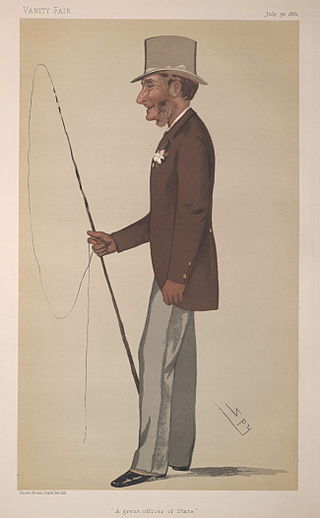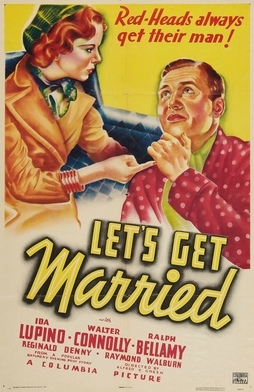
Earl of Lindsey is a title in the Peerage of England. It was created in 1626 for the 14th Baron Willoughby de Eresby. He was First Lord of the Admiralty from 1635 to 1636 and also established his claim in right of his mother to the hereditary office of Lord Great Chamberlain of England. Lord Lindsey fought on the Royalist side in the Civil War and was mortally wounded at the Battle of Edgehill on 23 October 1642. He was succeeded by his son, the second Earl. He also fought at Edgehill and surrendered to the Parliamentarians in order to attend his mortally wounded father. Lord Lindsey later fought at the First Battle of Newbury, Second Battle of Newbury, and at Naseby. His son from his second marriage, James, was created Earl of Abingdon in 1682. He was succeeded by his son from his first marriage to Martha Cockayne, the third Earl. He represented Boston in the House of Commons and served as Lord Lieutenant of Lincolnshire.

Earl of Abingdon is a title in the Peerage of England. It was created on 30 November 1682 for James Bertie, 5th Baron Norreys of Rycote. He was the eldest son of Montagu Bertie, 2nd Earl of Lindsey by his second marriage to Bridget, 4th Baroness Norreys de Rycote, and the younger half-brother of Robert Bertie, 3rd Earl of Lindsey. His mother's family descended from Sir Henry Norris, who represented Berkshire and Oxfordshire in the House of Commons and served as Ambassador to France. In 1572 he was summoned by writ to Parliament as Lord Norreys de Rycote. He was succeeded by his grandson, the second Baron. In 1621, he created Viscount Thame and Earl of Berkshire in the Peerage of England. He had no sons and on his death in 1624 the viscountcy and earldom became extinct. He was succeeded in the barony by his daughter Elizabeth, the third holder of the title. On her death, the title passed to her daughter, the aforementioned Bridget, the fourth Baroness, and second wife of the second Earl of Lindsey.

Baron Willoughby de Eresby is a title in the Peerage of England. It was created in 1313 for Robert de Willoughby. Since 1983, the title has been held by Jane Heathcote-Drummond-Willoughby, 28th Baroness Willoughby de Eresby.

Baron Middleton, of Middleton in the County of Warwick, is a title in the Peerage of Great Britain, created in December 1711 for Sir Thomas Willoughby, 2nd Baronet, who had previously represented Nottinghamshire and Newark in Parliament. It was one of twelve new peerages created together and known as Harley's Dozen, to give a Tory majority in the House of Lords.

Peregrine Bertie, 2nd Duke of Ancaster and Kesteven, styled The Honourable Peregrine Bertie between 1686 and 1704, Lord Willoughby de Eresby between 1704 and 1715 and Marquess of Lindsey between 1715 and 1723, was a British politician who sat in the House of Commons from 1708 until 1715 when he was called to the House of Lords.
Francis Willoughby, 5th Baron Willoughby of Parham was an English peer of the House of Lords.

Gilbert Henry Heathcote-Drummond-Willoughby, 1st Earl of Ancaster,, known as 2nd Baron Aveland from 1867 to 1888 and as 25th Baron Willoughby de Eresby from 1888 to 1892, was a British Liberal politician and court official.
Gilbert James Heathcote-Drummond-Willoughby, 3rd Earl of Ancaster, styled Lord Willoughby de Eresby from 1910 to 1951, was a British Conservative politician.

Willoughby is an electoral district of the Legislative Assembly in the Australian state of New South Wales. It was previously represented by Gladys Berejiklian of the Liberal Party, who announced on 1 October 2021 that she would resign from the Legislative Assembly and as Premier of New South Wales. She was replaced at the 2022 Willoughby state by-election on 12 February 2022 by Liberal Tim James.

Peter Robert Drummond-Burrell, 2nd Baron Gwydyr, 22nd Baron Willoughby de Eresby PC, was a British politician and nobleman.
Lady Joan Holland was the third daughter of Thomas Holland, 2nd Earl of Kent, and Lady Alice FitzAlan. She married four times. Her first husband was a duke, and the following three were barons. All of her marriages were most likely childless.

The siege of Bergen op Zoom was a siege that took place during the Eighty Years' War and the Anglo–Spanish War between September 23 - November 13, 1588. The siege took place in the aftermath of the Spanish Armada where under famed commander Alexander Farnese, the Duke of Parma attempted to use his forces utilised for the invasion of England to besiege Bergen op Zoom which was held by an Anglo-Dutch force under Thomas Morgan and Peregrine Bertie. An English officer Grimstone claimed to be a disaffected Catholic, had set up a trap during which a large Spanish assault was then bloodily repulsed. An Anglo-Dutch relief column under the command Maurice of Orange soon after arrived and forced the Duke of Parma to retreat, thus ending the siege.

Lieutenant General Sir Willoughby Cotton was a British soldier.
William Willoughby, 6th Lord Willoughby was an English landowner and politician who sat in the House of Commons and later in the House of Lords. In 1666 he inherited the peerage of Baron Willoughby of Parham, and from 1667 he served as Governor of Barbados.
The Battle of Kings Norton was fought on 17 October 1642. The skirmish developed out of a chance encounter between Royalists under the command of Prince Rupert and Parliamentarians under the command of Lord Willoughby. Both forces had been on their way to join their respective armies which were later to meet at Edgehill in the first pitched battle of the First English Civil War. The Parliamentarians won the encounter and both forces proceeded to join their respective armies.

Let's Get Married is a 1937 American comedy film directed by Alfred E. Green and starring Ida Lupino, who plays the daughter of a political consultant, Joe Quinn. It was produced and distributed by Columbia Pictures. Lupino was loaned out from Paramount to make the film.

Captain Blood is a 1924 American silent adventure film based on the 1922 novel Captain Blood, His Odyssey by Rafael Sabatini. Produced and distributed by the Vitagraph Company of America, the film is directed by David Smith, brother of Vitagraph founder Albert E. Smith. Early silent film hero J. Warren Kerrigan stars along with resident Vitagraph leading actress Jean Paige, who was also married to Albert E. Smith.
Sir Philip de Willoughby, was lieutenant of the Treasurer, Baron of the Exchequer of England, Chancellor of the Exchequer between 1283-1305 and was the keeper of the wardrobe to The Lord Edward between 1269-1274 and Dean of Lincoln between 1288 and 1305.
A by-election was held for the New South Wales Legislative Assembly electorate of Willoughby on 16 September 1915 following the death of Edward Larkin (Labor) who was killed in action at Gallipoli.









